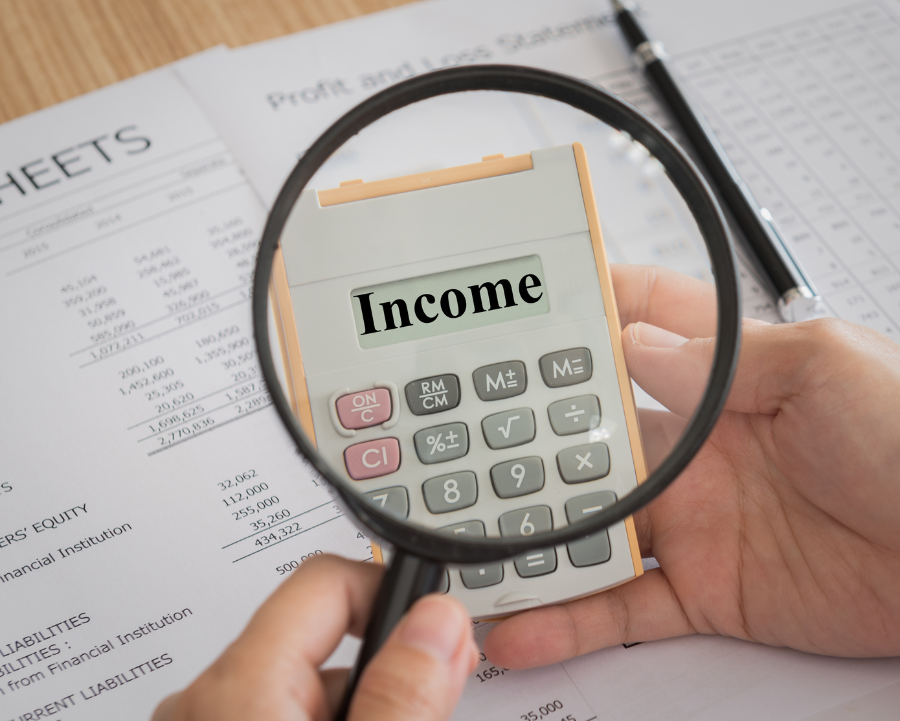Renting a house, apartment, or room has become an increasingly popular way to invest, switch careers, or start a side hustle. If you’ve decided to ride the wave, you may naturally have questions about short-term rental taxes on the revenue created by them.
Whether you’re renting on your own or through Airbnb, VRBO, or some other short-term rental host, unpacking the tax implications can get complicated quickly.
This helpful post will provide answers to frequently asked questions like, “Can I take short-term rental tax deductions?” “Is rental income passive?” and “Is rental income earned income?”
Enjoy Tax-Free Income on Your Short-Term Rental
The good news is you can earn tax-free income on your short-term rental if you rent your property for fewer than 15 days per year and stay in the house yourself for 14 days or more during the year.
That’s right — you can make as much money as you want, and you don’t have to report it to the Internal Revenue Service. This special IRS exception is known as the 14-day rule (named due to the maximum number of untaxed rental days described above).
That said, property management companies will report payments made to you using form 1099-K. They’ll send a copy both to you and the IRS.
You must keep detailed records of all rental days, the days you use the property, and the payments you receive for short-term rentals. You may need these records later to prove that you’re abiding by the 14-day rule.
Alternatively, you can report the money on your tax return as additional income, subtracting it from your gross income and noting that it meets the 14-day rule.
Either way, the income is tax-free if you rent only for 14 days or less. Just note that if you take advantage of this short-term rental tax loophole, you can’t also take any short-term rental tax deductions.
How to Report Short-Term Rental Income
If you have an investment property that is rented more than 14 days and you don’t use an outside management company to handle your rentals, two factors determine when and how you report income from your short-term rentals on your tax return: how long a renter stayed and whether you provided substantial or insubstantial services during the stay.
You’ll fall into one of three categories for reporting short-term rental income to the IRS:
- Non-Taxable Rental: If you meet the 14-day rule as described above
- Schedule C Rental: If you provide substantial services like cleaning during the renter’s stay, concierge services, meals, entertainment, guest tours or organized outings, transportation, or other hotel-like services)
- Schedule E Rental: If you provide services that aren’t substantial, such as cooling and heating, water and gas, internet and Wi-Fi, repairs and maintenance, trash pick up, cleaning, or homeowners’ association payments
You don’t have to report your income if you meet the requirements for a non-taxable rental, but you do for a Schedule C or Schedule E rental.
Get Short-Term Rental Tax Deductions
The upside of reporting is that you can claim short-term rental tax deductions if your rental is classified as Schedule C or Schedule E. Deducting short-term rental expenses can lower your tax liability. Expenses you can deduct include:
- Service fees from rental companies
- Cleaning and maintenance costs
- Utilities
- Repairs
- Advertising
- Mortgage interests
- Property insurance and private mortgage insurance
You also can deduct depreciation as long as you’re renting the property. If you’re renting a part of your home, you would depreciate a proportion of your home expenses to the area being rented. Since you must also allocate certain expenses between personal use and your rental property, careful record-keeping is vital.
Passive Income vs. Business Income
It’s impossible to overstate the importance of detailed record-keeping because of the role of documentation in short-term rental tax strategies. Consciously choosing to keep your rentals to 14 days a year or less is a type of tax strategy — you’re increasing your income without increasing your tax liability.
You should also educate yourself on the definitions of passive vs. active (or business) income earned from your properties.
Active income from short-term rentals is earned from properties that the owner actively manages. This means the owner is regularly involved in, and spends a substantial amount of time on, activities related to renting out the property.
Owners who earn active income can typically deduct rental losses against other forms of income, such as wages, salaries, and business income, subject to certain limitations and rules. To qualify as actively participating, the IRS typically requires the individual to be involved in making management decisions such as approving new tenants, deciding on rental terms, and overseeing maintenance.
Passive income is earned from rental activities in which the owner does not materially participate. Most often this means that you have an outside company managing your rental investment, the bookings and revenue. If you simply own the property and have minimal involvement in its management—often the case when a property management company is used—the income is considered passive.
Passive income is subject to different tax rules. Losses from passive activities can only be deducted against income from other passive activities. You can’t use passive losses to offset active income like wages. There are exceptions under tax law that may allow some rental losses to be deducted against non-passive income if certain conditions are met, such as the active participation exception for rental real estate activities.
Other Taxes to Consider
If you’re the property manager, you as the host will have to collect what’s known as an occupancy tax from your guests. The occupancy tax might also be known as a hotel tax, lodging tax, room/bed tax, and/or tourist tax, depending on where you live.
Occupancy taxes such as these often get overlooked. These property manager taxes get passed to the city, county, or state, and there can be serious consequences if they go unpaid. The occupancy tax varies according to several factors, so research your rental location to understand the specific rules and rates for that area because short-term rental regulations continue to evolve.
How to Protect Yourself
While it’s useful to consider short-term rental tax strategies, you should also think about your financial exposure and liability. How would you cover the cost if a guest damaged your home or injured themselves on your property? Or maybe you’d like the income but are wary of having strangers in your house and around your property.
One option is to form a limited liability company (LLC) to protect your personal assets if you’re sued by a guest. However, an LLC will add to your management duties and expenses and won’t cover personal property theft or destruction or structural damage.
You’ll definitely want to consider an LLC if you’ve purchased the rental with a group of friends or business associates, as the ownership documents will determine how the expenses and profits are divided.
To contact a lawyer for setting up an LLC, start by researching specialists in business law. Websites like Avvo.com, Martindale.com, and the American Bar Association’s directory at FindLegalHelp.org are excellent resources to find lawyers with expertise in LLC formations.
Get Protection for Your Short-Term Rental
If you’re a property manager or a homeowner, you also need the kind of protection Safely can offer your short-term rentals. Contact us today to speak with a knowledgeable team member about our guest screening and insurance plans.
Note: This article is meant for informational purposes only. Please be sure to consult your tax professional for full details on short-term rental tax liabilities.







